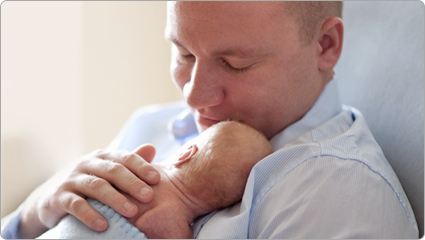NEONATAL ABSTINENCE SYNDROME (NAS)
What is neonatal abstinence syndrome?
Neonatal abstinence syndrome (NAS) is a term for a group of problems a baby experiences when withdrawing from exposure to narcotics.
Some drugs are more likely to cause NAS than others, but nearly all have some effect on the baby. Opiates, such as heroin and methadone, cause withdrawal in over half of babies exposed prenatally. Cocaine may cause some withdrawal, but the main symptoms in the baby are due to the toxic effects of the drug itself. Other drugs, such as amphetamines and barbiturates, can also cause withdrawal. Alcohol use causes withdrawal in the baby, as well as a group of problems including birth defects called fetal alcohol spectrum disorders (FASDs).
Why is neonatal abstinence syndrome a concern?
When a mother uses illicit substances, she places her baby at risk for many problems. A mother using drugs may be less likely to seek prenatal care, which can increase the risks for her and her baby. In addition, women who use drugs are more likely to use more than one drug, which can complicate the treatment. The risk of contracting HIV and AIDS is also greater among intravenous (IV) drug users.
In addition to the specific difficulties of withdrawal after birth, problems in the baby may include, but are not limited to, the following:
- Poor intrauterine growth
- Premature birth
- Seizures
- Birth defects
Specific drugs often times cause specific problems in the baby and may include the following:
- Heroin and other opiates, including methadone, can cause significant withdrawal in the baby, with some symptoms lasting as long as four to six months. Seizures may also occur in babies born to methadone users.
- Prenatal use of amphetamines is associated with low birthweight and premature birth.
- A mother's prenatal cocaine use is associated with poor fetal growth, developmental delay, learning disabilities, and lower IQ in her child.
- Marijuana use is linked to babies with lower birthweights.
- Alcohol use in pregnancy also has significant effects on the fetus and the baby. Growth during pregnancy and after birth is slowed. Specific deformities of the head and face, heart defects, and intellectual disability are seen with FASDs.
- Cigarette smoking has long been known for its effects on the fetus. Generally, smokers have smaller babies than nonsmokers. Babies of smokers may also be at increased risk for premature birth and stillbirth.
What are the symptoms of neonatal abstinence syndrome?
Symptoms of NAS may vary depending on the type of substance used, the last time it was used, and whether the baby is full-term or premature. Symptoms of withdrawal may begin as early as 24 to 48 hours after birth, or as late as five to 10 days.
The following are the most common symptoms of neonatal abstinence syndrome. However, each baby may experience symptoms differently. Symptoms of withdrawal in full-term babies may include:
- Tremors (trembling)
- Irritability (excessive crying)
- Sleep problems
- High-pitched crying
- Tight muscle tone
- Hyperactive reflexes
- Seizures
- Yawning, stuffy nose, and sneezing
- Poor feeding and suck
- Vomiting
- Diarrhea
- Dehydration
- Sweating
- Fever or unstable temperature
Premature babies may have a lower risk of withdrawal symptoms or have less severe symptoms and recover more quickly.
The symptoms of NAS may resemble other conditions or medical problems. Always consult your baby's doctor for a diagnosis.
How is neonatal abstinence syndrome diagnosed?
An accurate report of the mother's drug usage is important, including the time of the last drug taken. A neonatal abstinence scoring system may be used to help diagnose and grade the severity of the withdrawal. Using the scoring system, points are assigned for certain signs and symptoms and the severity of each. This scoring may also help in planning treatment.
Treatment for neonatal abstinence syndrome
Specific treatment for NAS will be determined by your baby's doctor based on:
- Your baby's gestational age, overall health, and medical history
- Extent of the disease
- Your baby's tolerance for specific medications, procedures, or therapies
- Expectations for the course of the disease
- Your opinion or preference
Babies suffering from withdrawal are irritable and often have a difficult time being comforted. Swaddling, or snugly wrapping the baby in a blanket, may help comfort the baby. Babies also may need extra calories because of their increased activity and may need a higher calorie formula. Intravenous (IV) fluids are sometimes needed if the baby becomes dehydrated or has severe vomiting or diarrhea.
Some babies may need medications to treat severe withdrawal symptoms, such as seizures, and to help relieve the discomfort and problems of withdrawal. The treatment drug is usually in the same family of drugs as the substance the baby is withdrawing from. Once the signs of withdrawal are controlled, the dosage is gradually decreased to help wean the baby off the drug. Consult your baby's doctor to learn which treatments might be effective for your baby.
Prevention of neonatal abstinence syndrome
Neonatal abstinence syndrome is a totally preventable problem. However, it requires that a mother stop using drugs before pregnancy, or as soon as she learns she is pregnant if her doctor believes it is safe to do so.

